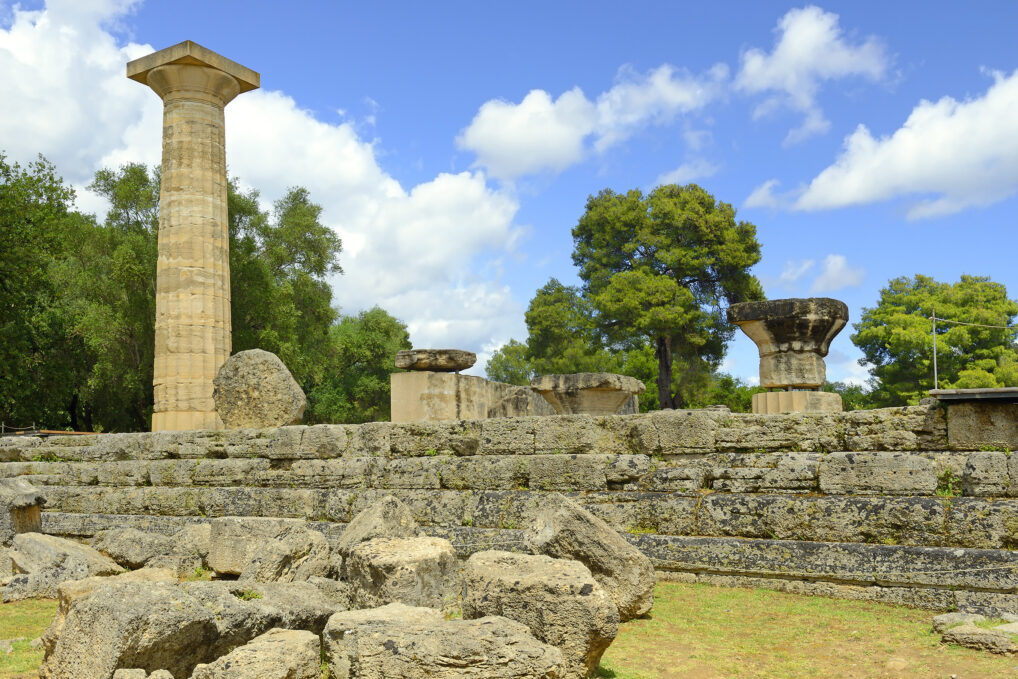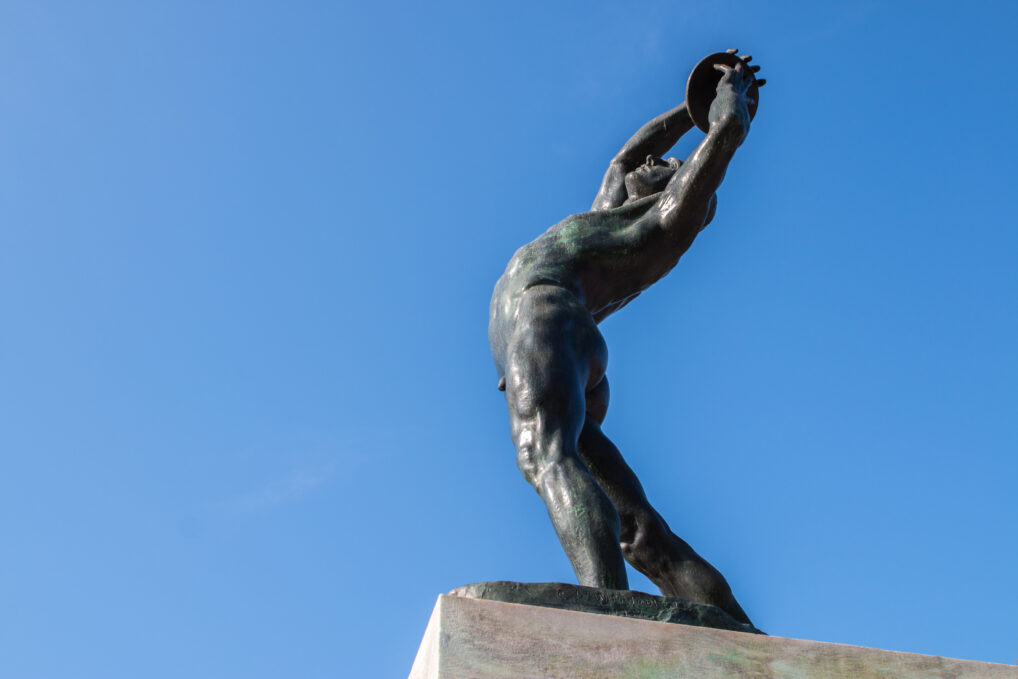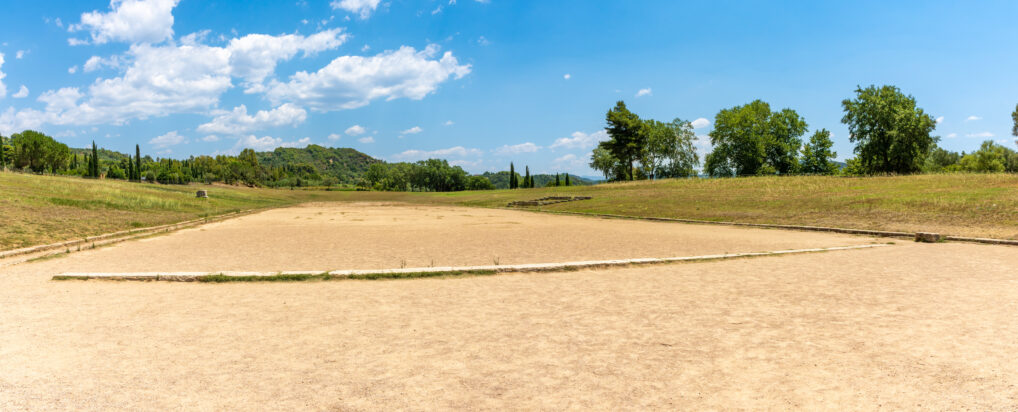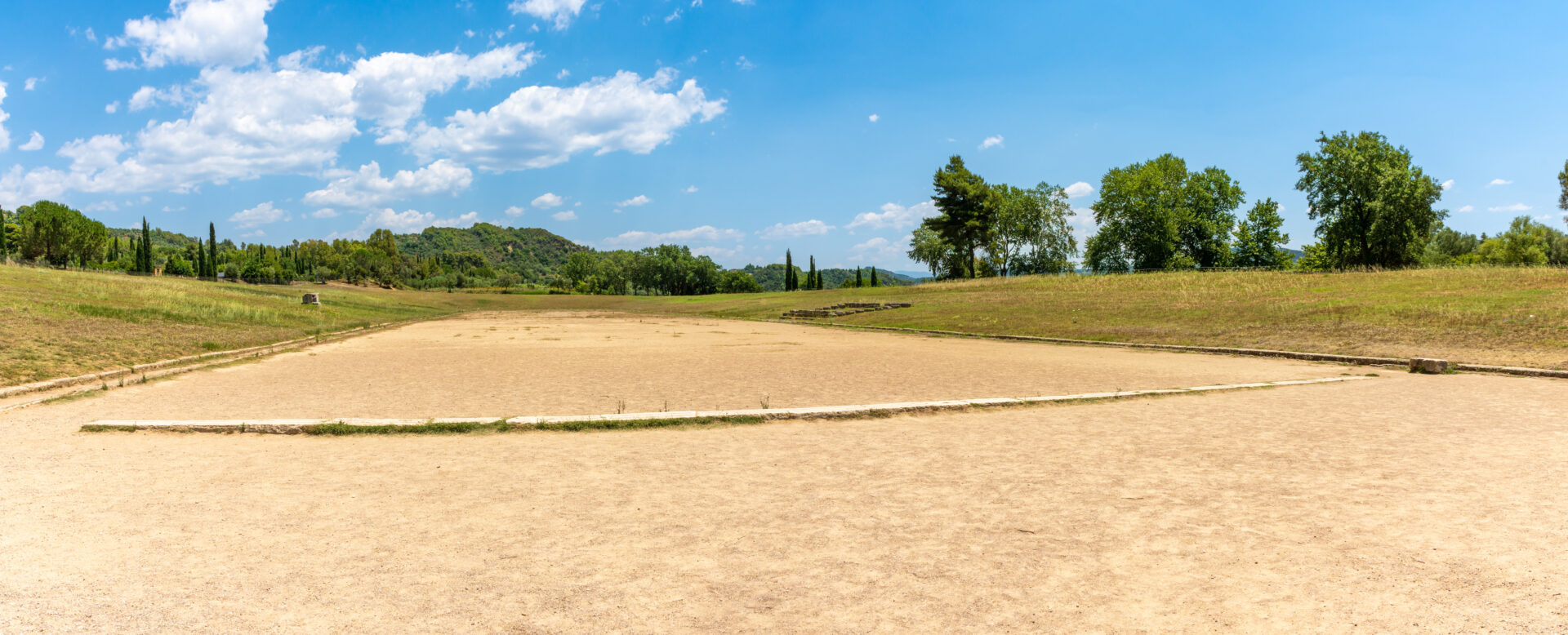The Ancient Olympic Games were a Celebration of Human and Divine Excellence!
The Ancient Olympic Games, a sporting and religious event that marked the history of ancient Greece, were held every four years in Olympia, a small town in the Peloponnese. The first Olympic Games took place in 776 BC. These games were dedicated to Zeus, the king of the gods, and were a major manifestation of the physical and spiritual excellence of the Greeks. It’s very likely that there were even older games.

Origins and Religious Significance
According to legend, the Olympic Games were established by Heracles, the famous mythological hero, in honor of Zeus. In reality, they were an integral part of a religious festival that included sacrifices and rites in homage to the gods. The Games were held at the Sanctuary of Zeus at Olympia, a sacred place where Greeks from all city-states came to celebrate unity and peace.
Events and Athletes
The competitions of the Ancient Olympic Games were varied and demanding. Among the most emblematic events were running (stadium), wrestling, pugilism (boxing), pankration (combination of wrestling and boxing), as well as the pentathlon, which included running, long jump, discus throwing, javelin throwing and wrestling. Chariot and horse races also added a spectacular dimension to these games.

Athletes, often from noble families, trained intensely for these competitions. Victory at the Olympic Games was one of the highest honors a Greek could achieve, bringing not only personal fame, but also immense pride to his city. Victors were crowned with an olive branch, a symbol of peace and victory, and often received material rewards and privileges.
A Moment of Truce
One of the particularities of the ancient Olympic Games was the “sacred truce” or “εκεχειρία” (ekecheiria). This truce, proclaimed before each edition of the games, ensured that the warring city-states would cease hostilities to allow athletes and spectators to travel safely to Olympia. This principle of temporary peace underlined the importance of the games as a moment of gathering and unity beyond political conflicts.
Legacy and Decline
The ancient Olympic Games lasted for nearly twelve centuries, until 393 A.D., when they were abolished by the Roman Emperor Theodosius I, who considered these pagan festivals incompatible with burgeoning Christianity . Despite their disappearance, the spirit of the games lived on, influencing the culture and values of sport around the world.
The revival of the modern Olympic Games in 1896, thanks to the efforts of Pierre de Coubertin, was directly inspired by this ancient tradition. Today, the Olympic Games continue to symbolize athletic excellence, peace and unity among people, continuing the legacy of the ancient Greeks.
Revisiting the ancient Olympic Games reveals not only a series of sporting competitions, but also an event deeply rooted in Greek culture and religion, uniting men around the ideals of honor, glory and the peace.





